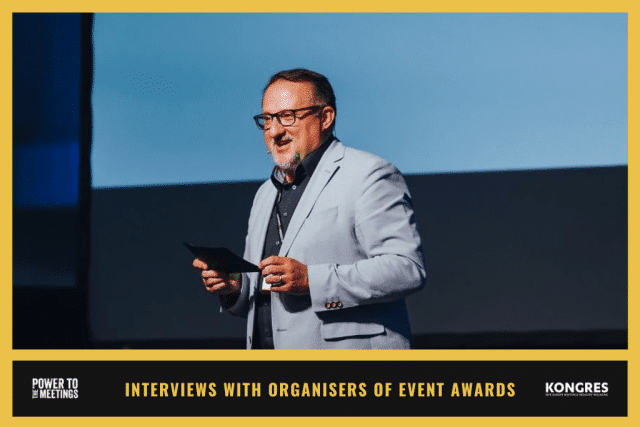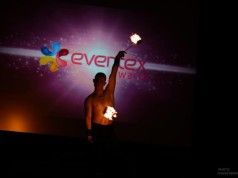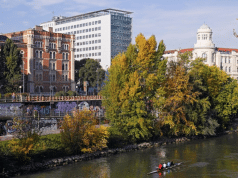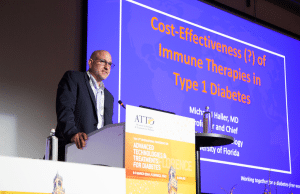INTRO: Can you describe your competition and award using only four words?
New Europe’s event unicorns.
Q1: What is the added value and purpose of best event award competitions?
A best event award competition is a compass heralding the direction of the meetings industry. Each shows which projects are game-changers and why. They showcase the most creative, original and relevant events. Furthermore, best event award competitions help event organisers compare themselves to the competition, uncovering which event agencies can host the most demanding projects. Conventa Best Event Award hunts for the unicorns of our industry – events that engage attendees in original, unseen ways. I believe our competition has gained prominence because of our unicorn approach. We are not interested just in the use of technology or event budget but in whether an event incited change among attendees.
Q2: What differentiates your competition from others?
Our competition is unique because of the innovative model for evaluating works. The three-stage evaluation is conducted according to an 80/20 model. The expert jury contributes 80% of the votes, while the audience at Conventa Crossover contributes 20%. To our knowledge, we are the only competition that evaluates projects this way. We introduced the evaluation to the jury and the audience a decade ago and received positive responses. We believe this approach ensures the highest level of objectivity of our competition. More importantly, we advocate that live interactions between the event organisers and the jury are quintessential. We did not give up on the in-person format even during the corona crisis when we stubbornly hosted a hybrid event. Digitalisation also brings about speculations that do not exist when there is genuine, in-person contact between the jury and the representatives of event agencies.
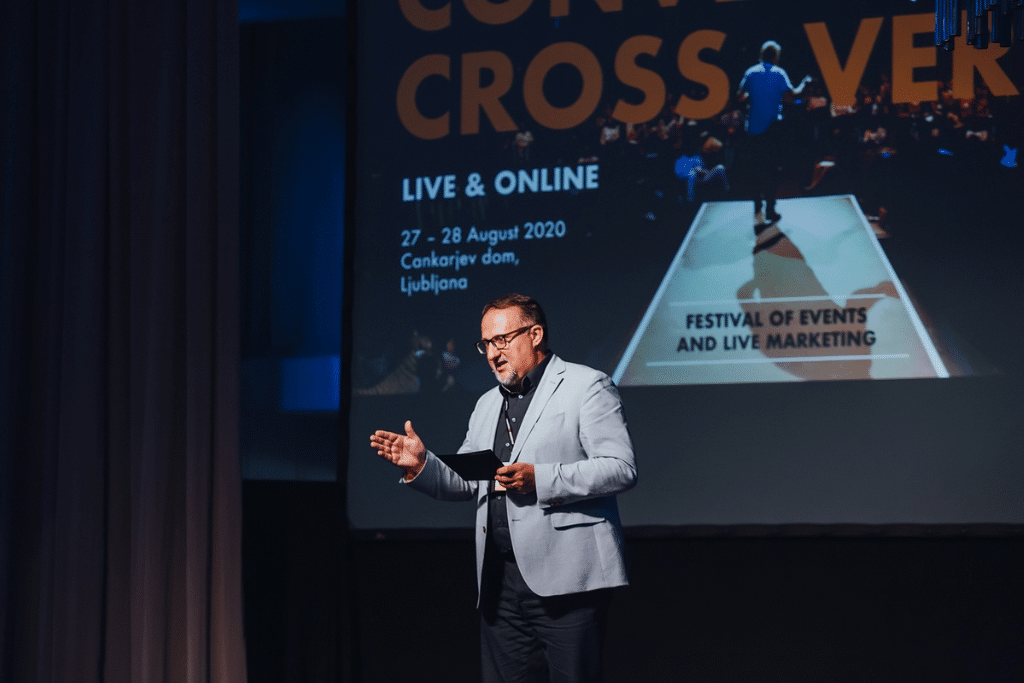
Q3: What are the novelties of your competition in 2023?
This year, we added new members to our expert jury. Now, 19 distinguished members cover the entire event spectre of our industry. Several of them are also clients of event agencies. One of the novelties this year is that the jury will have a dedicated day for evaluating works on Monday, 28 August 2023, for the first time after the corona period. This part of the event will be entirely open to the public. Each finalist will personally present their event, sparking interactions between the jury and them. We will also broadcast this part of the event online, further strengthening our competition’s credibility. In 2023, we will also introduce new awards; we will select the best event in corporate social responsibility and present awards for the best agency and most sustainable event.
Q4: How has the pandemic impacted your competition? What have event organisers learned from the pandemic?
The corona crisis was an unprecedented period. We were thus proud to have organised the event without intermissions. During a complete event hiatus, we organised a hybrid event. This year, we are celebrating the tenth year anniversary of the competition, making Conventa Best Event Award one of the oldest event competitions in Europe.
During the corona crisis, the number of in-person events that joined the competition drastically reduced. Yet, that does not mean they were not world-class events. On the contrary, the situation prompted many event organisers to seek out-of-the-box solutions, resulting in highly creative projects. Most importantly, the projects showed that the analogue and digital event worlds had long coexisted side-by-side. Their merging occurred even before the pandemic but was irreversibly advanced during that period. We now await climate change to give the meetings industry the final push to begin making a sustainable transformation and stop with greenwashing. We have a long way to go.
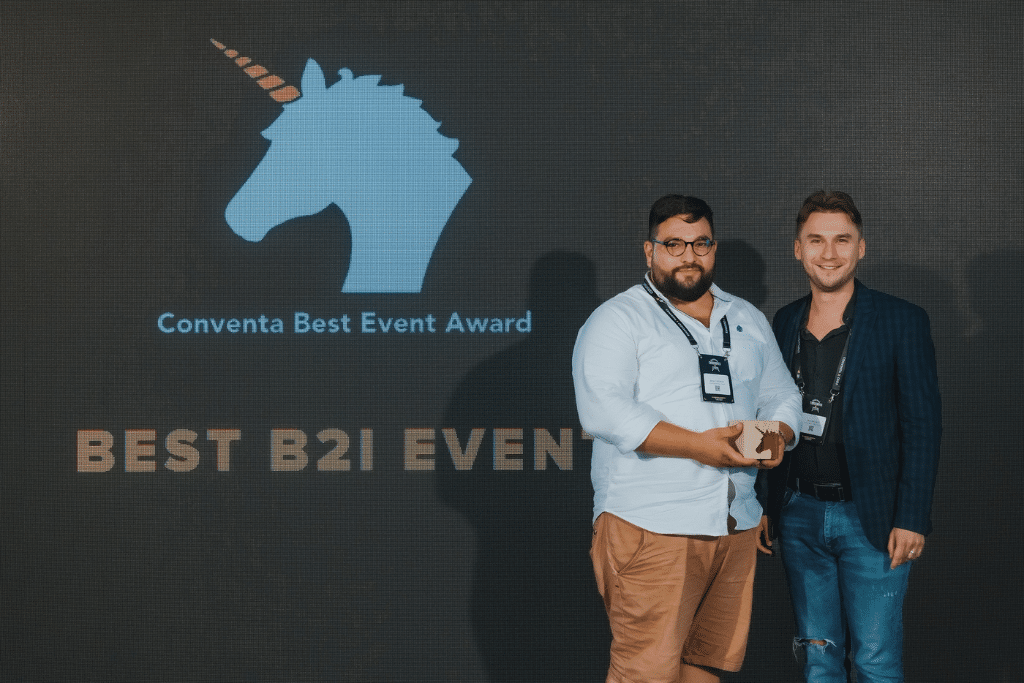
Q5: What do you consider most important when selecting the expert jury? What criteria do you follow?
Jury members are independent experts who I personally know and whose work I cherish. I admire the events and projects they organise. They all have an in-depth insight into the zeitgeist of our industry and decades of experience. I host a conversation with each jury member and put aside the prominence of their agency or firm. I ardently believe our jury can look below the surface of an event, discovering the core of usually hidden icebergs. I am fascinated that the audience always welcomed jury evaluation and voting since the first edition. More importantly, the agencies that enter their projects respect the jury work and their decisions. Not everyone can become a jury member, however. It is both an honour and a responsibility. I am thus grateful to each one of them for their invaluable work. Attending our event in person will convince any doubter that we have the most credible jury in the meetings industry.
Q6: How will you evaluate the projects? What is that X factor you look for in events? Do you have criteria for choosing a great event? What about a poor event?
I believe it all starts and ends with creativity and originality. That is the minimal standard any good event must achieve. In my opinion, that is what makes an event stand out. Most projects do not make it to the finale because they lack originality or are just copycats.
We seek fresh, bold, provocative and game-changing events. The jury criticises events that do not deliver that. I believe the best solution is one that hides creative ingenuity. Of course, event results measured precisely matter just as much. Personally, I believe insight is crucial because it lets us know why an event was created and which problems it aims to tackle. An event can be fantastic, but it has no purpose if it does not address a pressing issue. That is one of the most overlooked regenerative aspects of event organising.
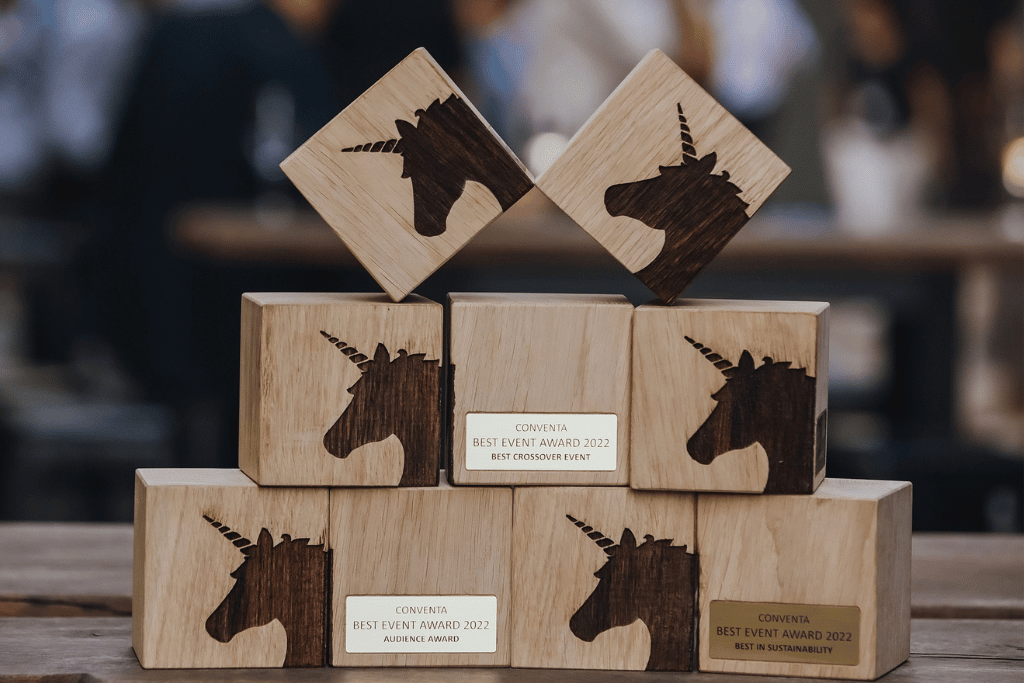
Q7: Your competition evaluates the best events. Often, event competitions also asses venues, hotels and destinations. There are more advanced matrixes on the market compared to the biased opinion of the jury to evaluate them. There have been cases when a destination is evaluated by a jury member who sees the destination as competition. Thus, doubts often arise about the credibility and objectivity of such evaluations. What is your opinion on this topic?
Our competition is 100% focused on selecting the best events. We believe selecting the best venues and destinations is only possible if the criteria are clear and structured. Still, selecting venues and destinations does not correlate to any best event award competition.
Kongres Magazine and Conventa developed a dedicated award, named the Meetings Star, to award the best meeting destinations, hotels and venues.
Since its inception, the coveted award has become recognised among event organisers in the meetings industry as one of the only awards based on precisely defined criteria and standards. The assessors evaluate a destination based on the Meeting Experience Index, which includes 75 evaluation criteria. Hotels and venues are evaluated based on the visit of the hidden congress guest, who assesses their quality on the basis of 654 evaluation criteria. Further information is available at: https://meetings-star.eu/. Our evaluation has become a reference point for event organisers, hoteliers, investors and others who wish to put their quality to the test. However, the concept of a hidden guest assessor is expensive and complex.
To answer your question: I personally do not believe a jury can objectively select the best venue or hotel based on an entry into their system. That is far too subjective and thus detached from reality. Consequently, such competition can lead to wrong decisions. Therefore, we must differentiate between award competitions for the best events and award competitions for the best venues. In my opinion, such competitions only mix apples and oranges for profit.
Q8: How do you see the difference between live event competitions, where event agencies can personally meet jury members and virtual event competitions, taking place online?
As mentioned before, I advocate that in-person competitions are far more objective. Advanced algorithms cannot yet replace a sincere, genuine debate between jury members and event agencies. We must also be aware of technology’s limitations. Can a digital competition actually become palpable and physical? That begs another question: what is real and what is not? When do we become a disinformed society? Knowing and using AI technology can help boost productivity and quality of life. Yet, AI can also jeopardise democracy and contribute to the rise of new weapons. Every company or organisation with access to information can adjust the algorithms to fit their goals. The ultimate abuse of artificial intelligence is the emergence of fake news, which nobody wants. Fake event awards fall into this category, too. One can easily spot such competition by the sheer multitude of categories. Having a neverending number of categories means every project that enters the competitions and pays a fee receives at least a consolation prize. On the other hand, the Oscars or Cannes Lions have a clear structure that adapts to the radical changes altering the market. Profit does not drive such award competitions. I hope event organisers and clients know how to separate the wheat from the chaff.
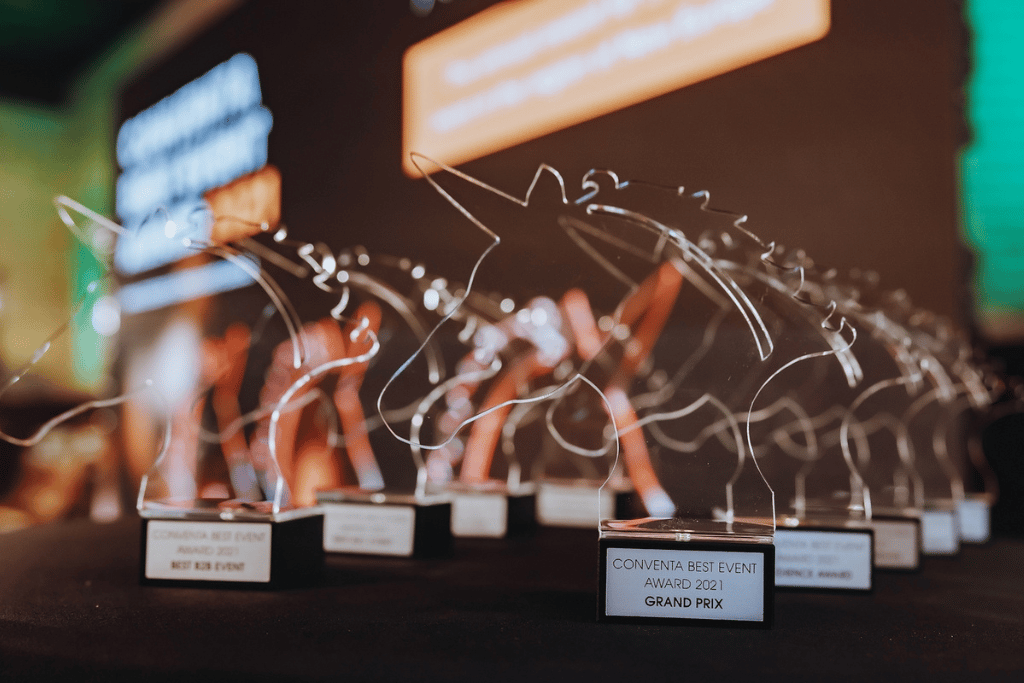
Q9: What are your future steps and vision to develop the competition?
To become the most credible competition for the best events in Europe, or as we tend to say, between Helsinki and Istanbul and Milano and Baku. By awarding our unicorn prizes, we wish to showcase best-case practices and make a long-lasting impact that will render the meetings industry more responsible to the environment, society and attendees. At the same time, we wish to remain a valuable partner in competitions with the same philosophy as we do, especially BEA World Festival, our proud partner for several years. We believe we can build a network of trustworthy regional festivals together, building on the story of BEA World, the Cannes of the global meetings industry.
Q10: What are your priorities to help create a carbon-neutral meetings industry? Can you illustrate with examples and initiatives implemented at your event competition?
Conventa was a pioneering event in terms of sustainable event organising. At the Bea World Festival, where the best global events compete for gold, Conventa won first place in the category of green and sustainable events. Conventa’s groundbreaking 7R model convinced the esteemed international jury, who saw the methodology as a credible solution for organising future events sustainably. Conventa’s model has shown that complex trade shows can be organised responsibly, respecting the environment, society and attendees. A crucial part of organising the event is tackling climate change and measuring the event’s carbon footprint. By doing so, we identify measures to reduce emissions and document our progress.
Q11: Can you name a pressing challenge the entire global meetings industry should tackle together?
Debates on adapting to nature seem to be without a final answer. This summer has shown that in full effect, as nature showed us its brutal side. I personally believe this is a direct repercussion of global warming. “No man is an island, entire of itself; every man is a piece of the continent, a part of the maine”, wrote Ernest Hemingway. I carry this thought with me at every step, as it illustrates global warming. We must not underestimate the situation, and I hope we have learned our lesson this summer. We are amid a tumultuous, dangerous, and uncertain epoch marked by increased militarisation and military conflicts.
Destinations and providers who insist on constant economic growth are problematic. No activity can go beyond the limitations of natural resources. That is why we need a new social-economic paradigm that will teach us how to create events that follow natural limitations. These include limits on locally-available resources. A time is coming when zero growth or minimal growth will be better than endless growth.
In any case, the meetings industry has a challenging task ahead. We must significantly reduce the use of energy, materials and environmental and social resources at events. In addition, we will have to consider the bearing capacity of the environment and ecosystems without endangering future destinations. We must build a regenerative, sustainable and inclusive meetings industry. Less is more, right?
Conventa Best Event Award 2023
Conventa Best Event Award is an annual competition that awards the best events in the region of New Europe. This year, the best event awards will be proclaimed on 29 August 2023 in Ljubljana as part of the Conventa Crossover festival.
Learn more about Conventa Best Event Award here.


